Power cords, also known as power supply cords, are flexible electrical cables that connect devices and appliances to a power source. They’re most commonly found on appliances that don’t come with a power cord, such as dryers, stoves, and computer displays. Read More…
Our customers find we have the highest standards when it comes to quality, and delivery. Quail Electronics is a worldwide power cord supplier, offering power cords and various other products.
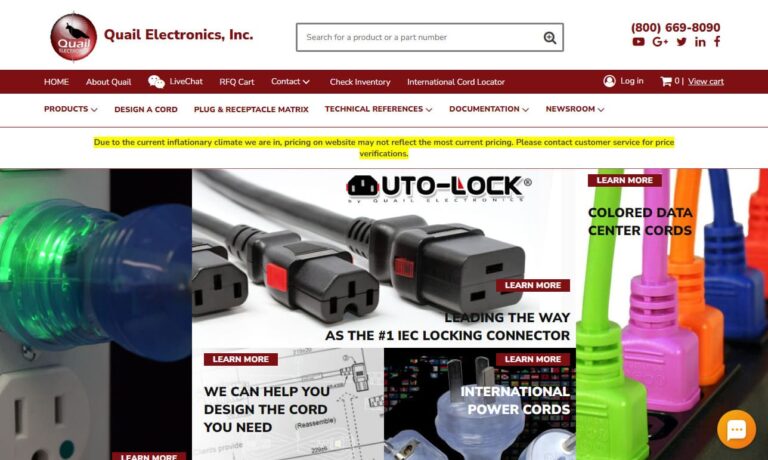
All of our power cords are tested and stand up to rigorous demands of everyday application. We serve a global market including the United Kingdom, Ireland, Germany, Switzerland, Austria and of course the United States.
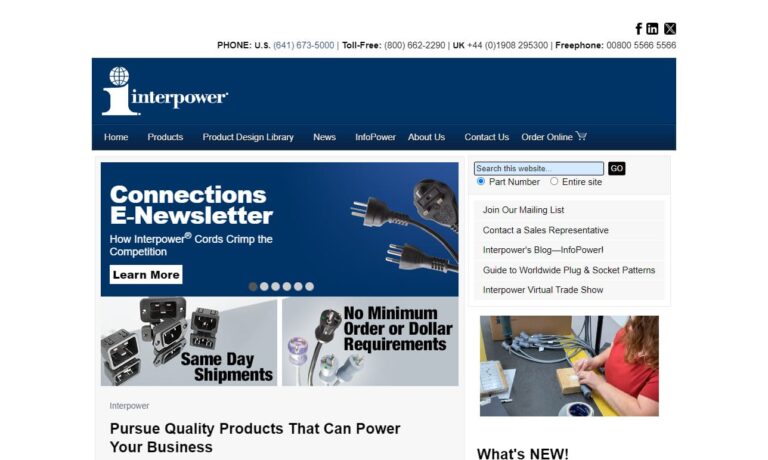
US Cordset Manufacturing provides power-supply products to various categories of customers from domestic to industrial. Our line of products include wiring harnesses, Coiled cords, extension cords, processed wires, high voltage twist lock cords, and more. Whether your requested electrical configuration is simple or intricate, our expert staff is ready to help.
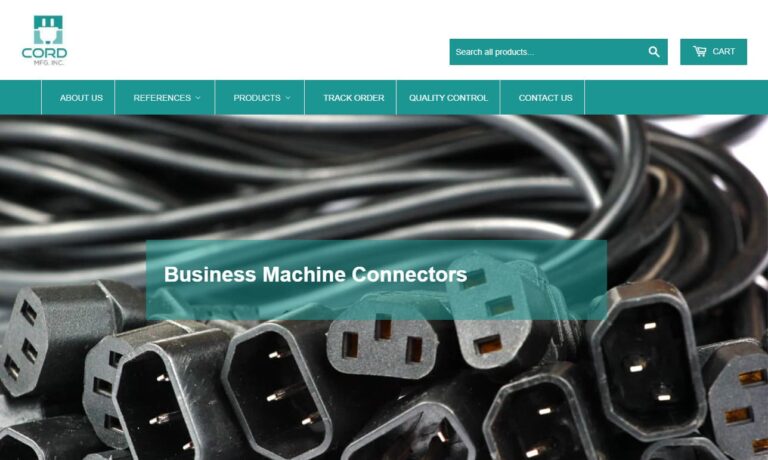
Our plug adapters are guaranteed to bring you a lifetime of value. Our staff is committed to bringing you only the most reliable products that are available. We will find solutions for your cord needs regardless of how difficult the job may be.
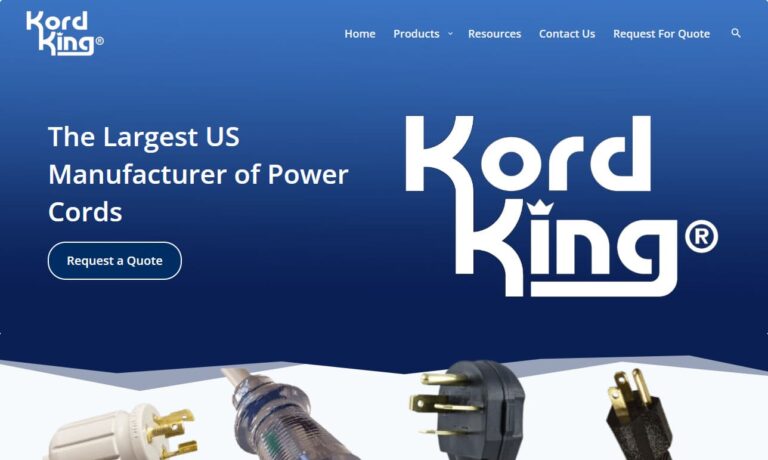
At Americord, we dedicate ourselves to delivering high-quality power cords and custom wiring solutions that meet the demands of diverse industries. We design and manufacture durable cords that are tailored for performance, safety, and reliability, serving applications ranging from consumer electronics and industrial machinery to specialized equipment requiring precise electrical connectivity.
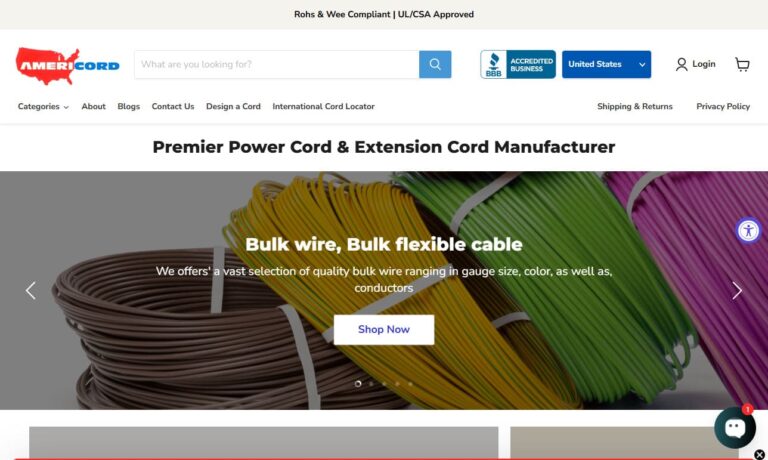
At Cord-Sets, we dedicate ourselves to delivering high-quality power cord solutions that meet the needs of industries across the globe. We specialize in designing and manufacturing power cords, cord sets, and related components that are engineered for durability, safety, and reliable performance.

More Power Supply Cord Manufacturers
What are Power Supply Cords?
The male connector or plug on one end connects to the electrical receptacle, wall outlet, or extension cord. The female connector on the opposite end is connected to the appliance or another male connector. In some appliances, this female connector is omitted and replaced by a permanent cable.
Power cords are commonly found in both residential and commercial settings. Every electrical appliance, such as televisions, laptops, refrigerators, and air conditioners, uses them. However, because most plant equipment takes a lot of electricity and requires medium to high voltages, power cords are rarely used in industrial and manufacturing plants. Current and voltage ratings of 16 A to 20 A and 125 V are normal for power cords.

Types of Power Supply Cords
Different types of power cords include:
AC Power Cords
This power cable is used to conduct electricity in the form of alternating current (AC) or electrical power with a sinusoidal waveform, as the name implies. The common electricity format in most, if not all, electrical outlets is an AC electrical system.
Custom Power Cords
These are power cords that customers have specially ordered. Not everything can be made accessible on the market due to the innumerable combinations of plugs, connections, and cord standards. Customization options are available from top power cord suppliers to suit specific needs.

Extension Cords
These electrical cords are used to extend the distance between the power source and the appliance. On one end is a socket connection, and on the other is an electrical plug.
Power Cords for Generators
These are usually cords with a high amperage rating. Before the power is distributed to the utility system, their current rating can reach 50 A. Generator power cords must have the same power rating as the highest-rated generator outlet to avoid insulation breakdown.
Power Cords with NEMA Plugs
NEMA power cords are electrical cords that adhere to the National Electrical Manufacturers Association's requirements (NEMA). NEMA standardizes each power cord component's design. North, Central, and certain South American regions employ NEMA standards.
NEMA 5-15P Power Cords
On one end, these power cords have a Type B electrical plug. NEMA 5-15P refers to a 15-amp NEMA standard plug. Two flat, current-carrying pins (live and neutral) and one spherical earth pin make up the plugs.

Standards for Power Supply Cords
The different standards for power cords include:
International Standards IEC 60320
IEC 60320 is a collection of standards for power cables for appliances with a voltage of up to 250 volts. Even though each country has its own power cable types and regulations, the IEC 60320 is widely accepted as an international standard. The letter "C" stands for the IEC 60320 code standard for connections. Multiple connector types are provided for different combinations of current, voltage, and temperature. C14 to C13 and C20 to C19 are the most often utilized power cord kinds.
Europe: CEE 7/7 (Type E, Type F)
In several European countries, as well as those that follow the CENELEC standard, CEE 7/7 is now the de facto plug standard. Denmark (AFSNIT 107-2-D1), Ireland, Italy (CEI 23-50), Malta (BS 1363), Cyprus (BS 1363), Gibraltar (BS 1363), and Switzerland (SEV 1011) are among the European countries that do not adopt CEE 7/7. CEE 7/7 to C13, CEE 7/7 to C15, and CEE 7/7 to C19 are the most common power cords that use the CEE 7/7 plug.
North American: NEMA 5-15P (Type B)
The NEMA standards are widely used in most North American countries and a few others. The NEMA 5-15P plug is the most extensively used in sockets among the NEMA 5-15P plugs. They are three-wire circuits (hot, neutral, and ground) rated at 15 amps at 250 volts, though they're generally used with 110 volts.
The most common type is the Nema 5-15 standard NEMA 5-15P to NEMA 5-15R power cord. The plug is designated by NEMA 5-15P, and the receptacle is designated by NEMA 5-15R. NEMA 5-15P to C13 and NEMA 5-15P to C15 are two other commonly used NEMA 5-15 plug power cord kinds.
Choosing the Right Power Supply Cords Manufacturer
To make sure you have the most positive outcome when purchasing Power Supply Cords from a Power Supply Cords Manufacturer, it is important to compare at least 6 Suppliers using our list of Power Supply Cords manufacturers. Each Power Supply Cords Manufacturer has a business profile page that highlights their areas of experience and capabilities and a contact form to directly communicate with the manufacturer for more information or request a quote. Review each Power Supply Cords company website using our patented website previewer to get an idea of what each business specializes in, and then use our simple RFQ form to contact multiple Power Supply Cords businesses with the same form.

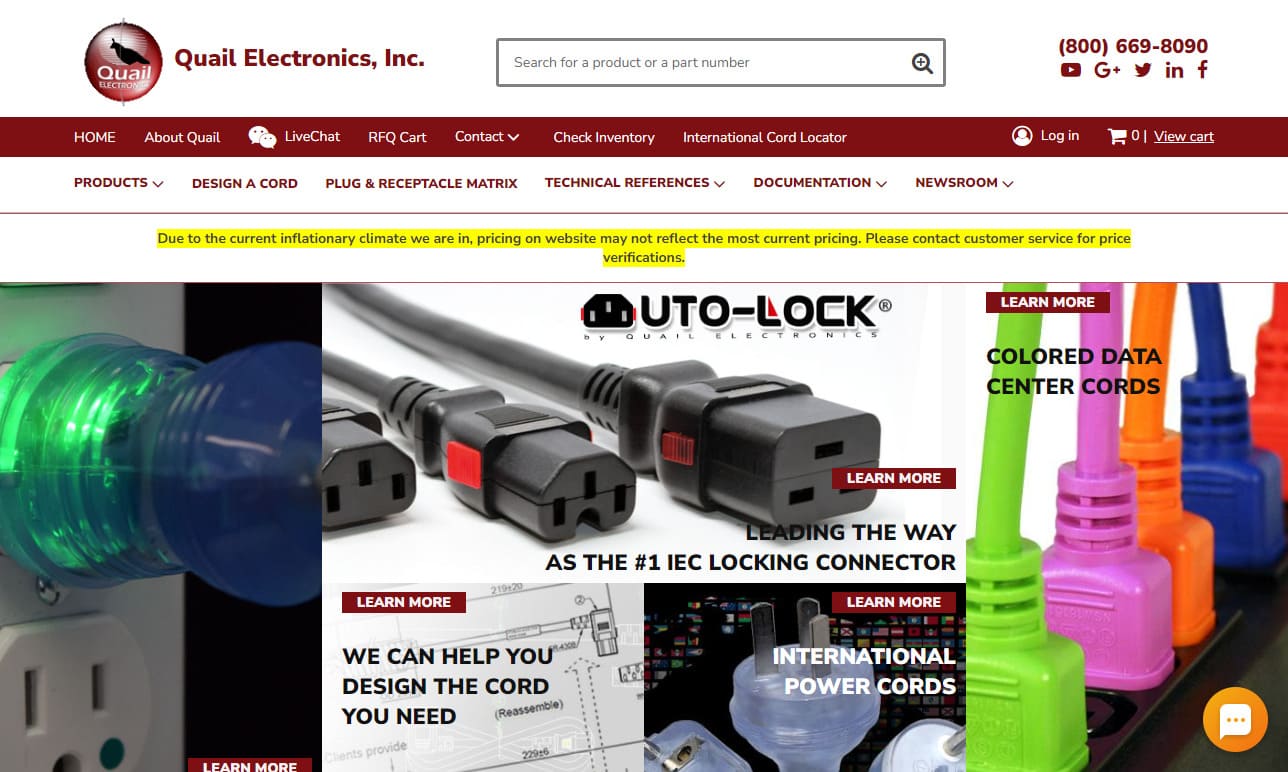
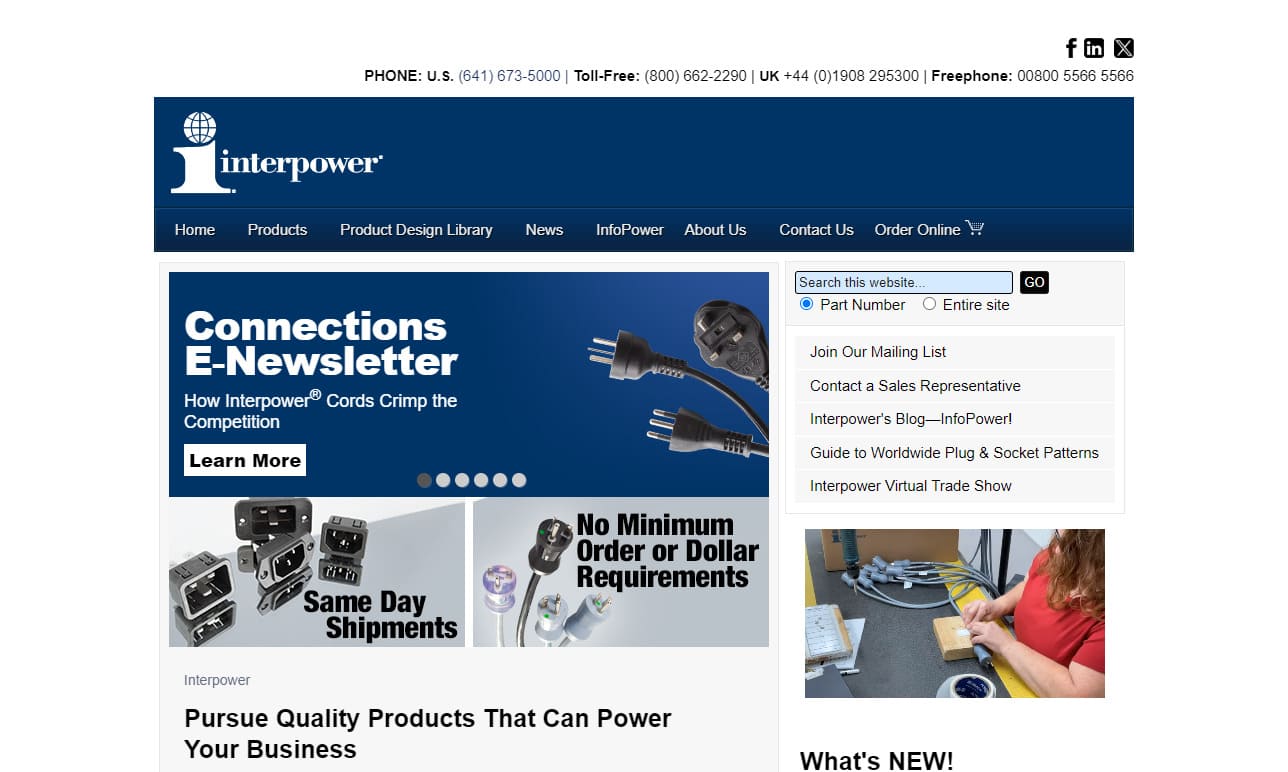
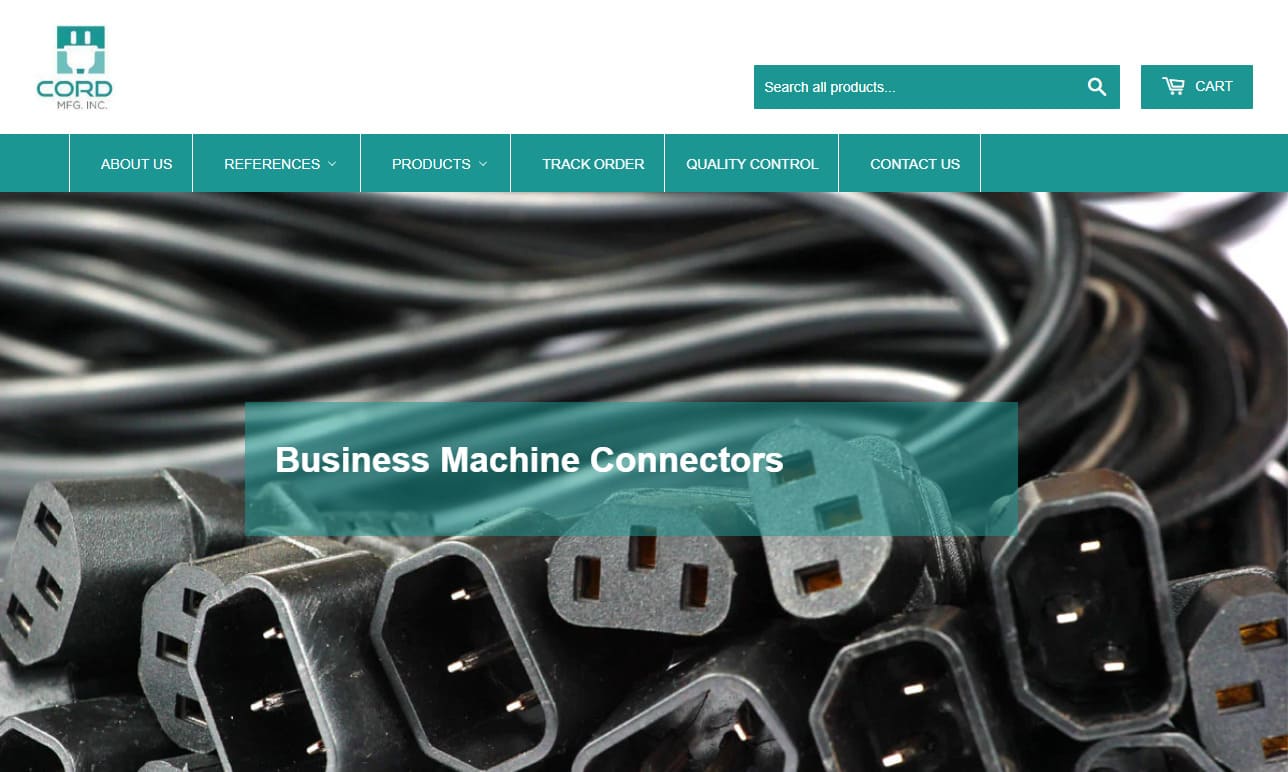
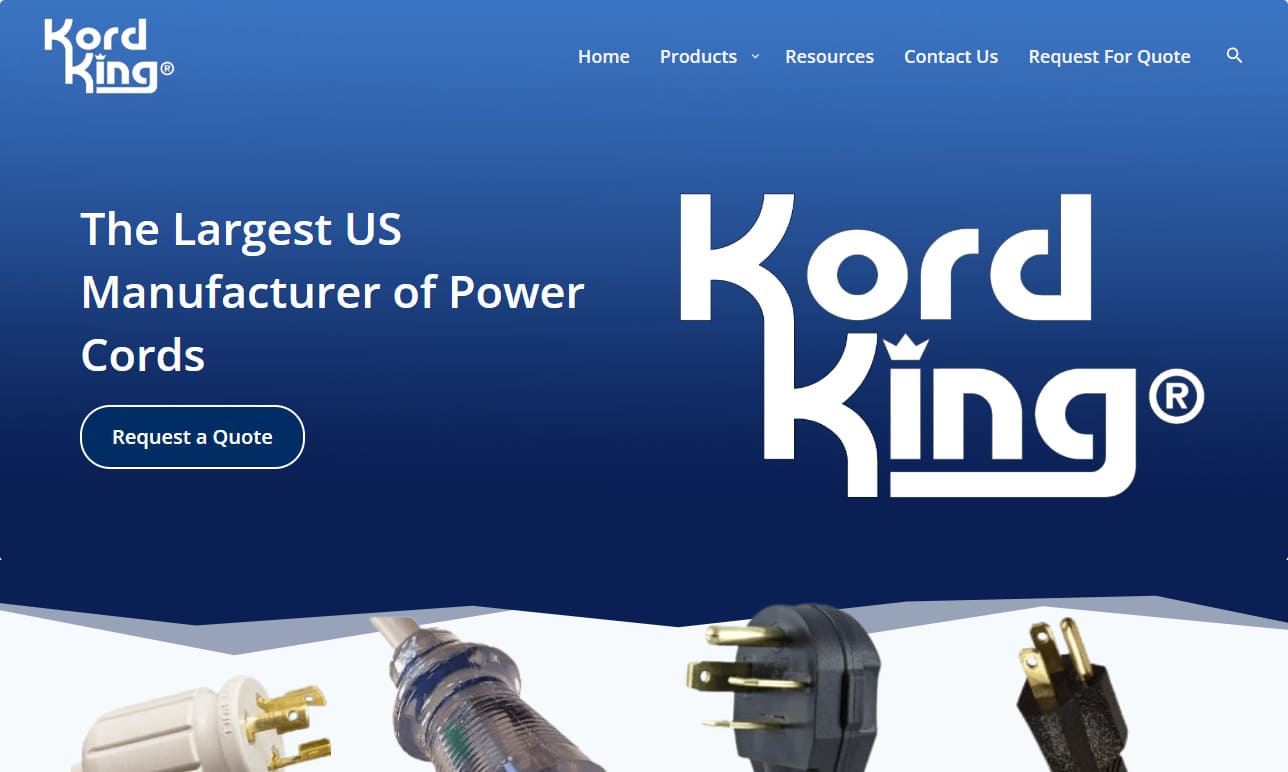
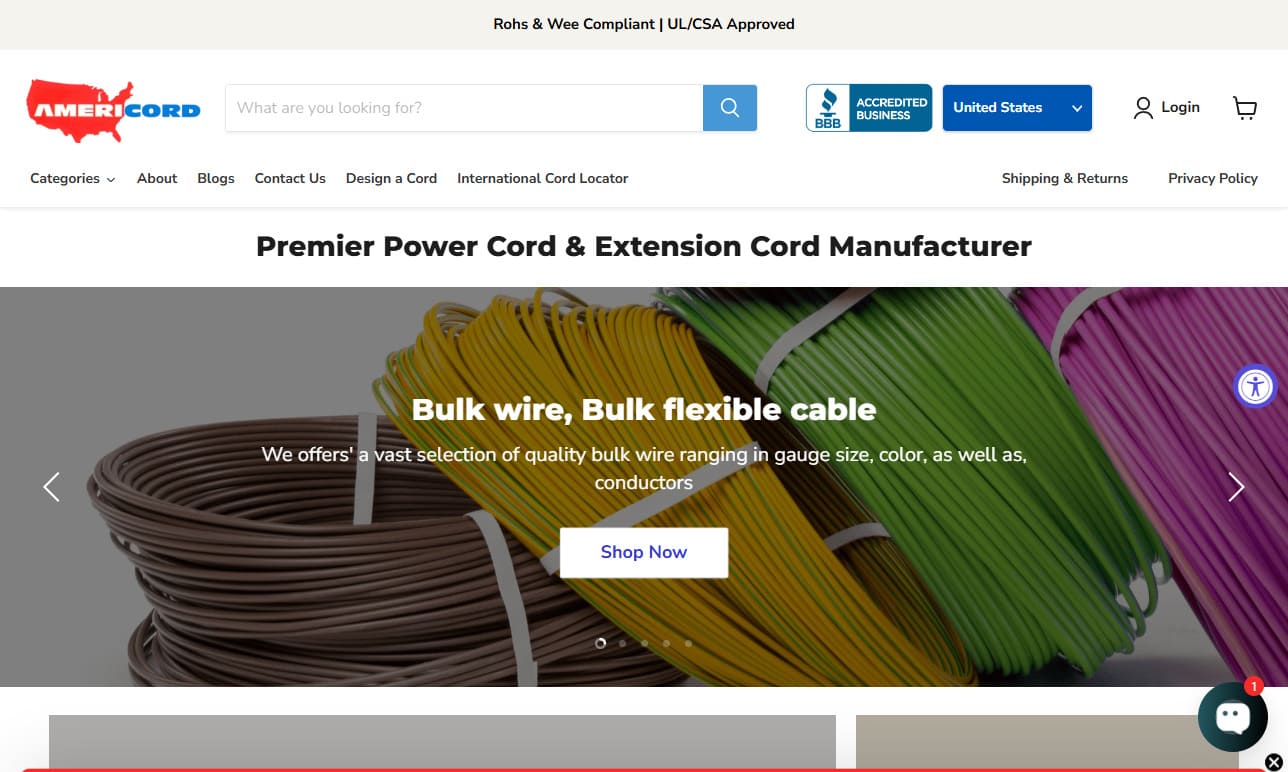

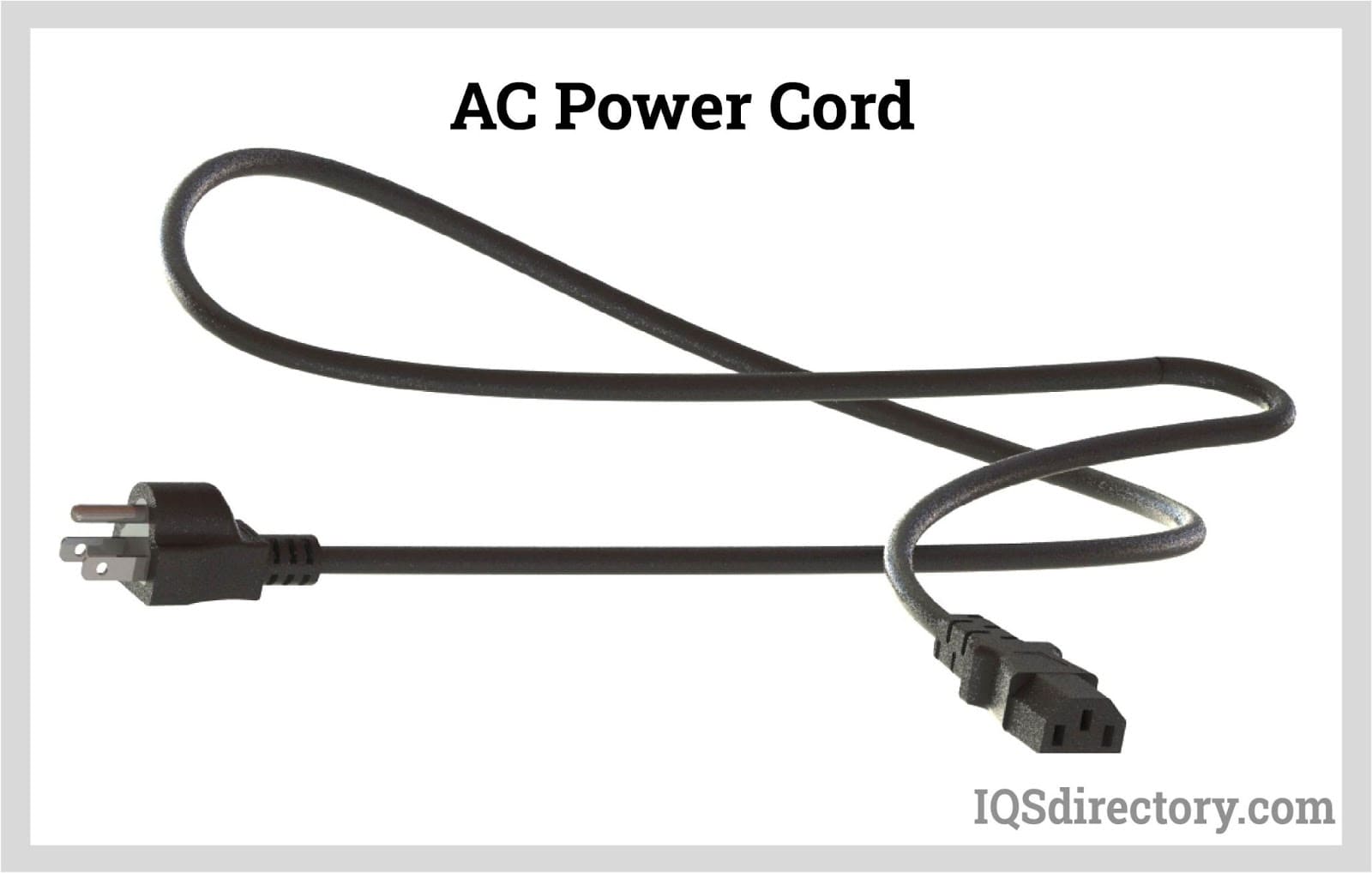
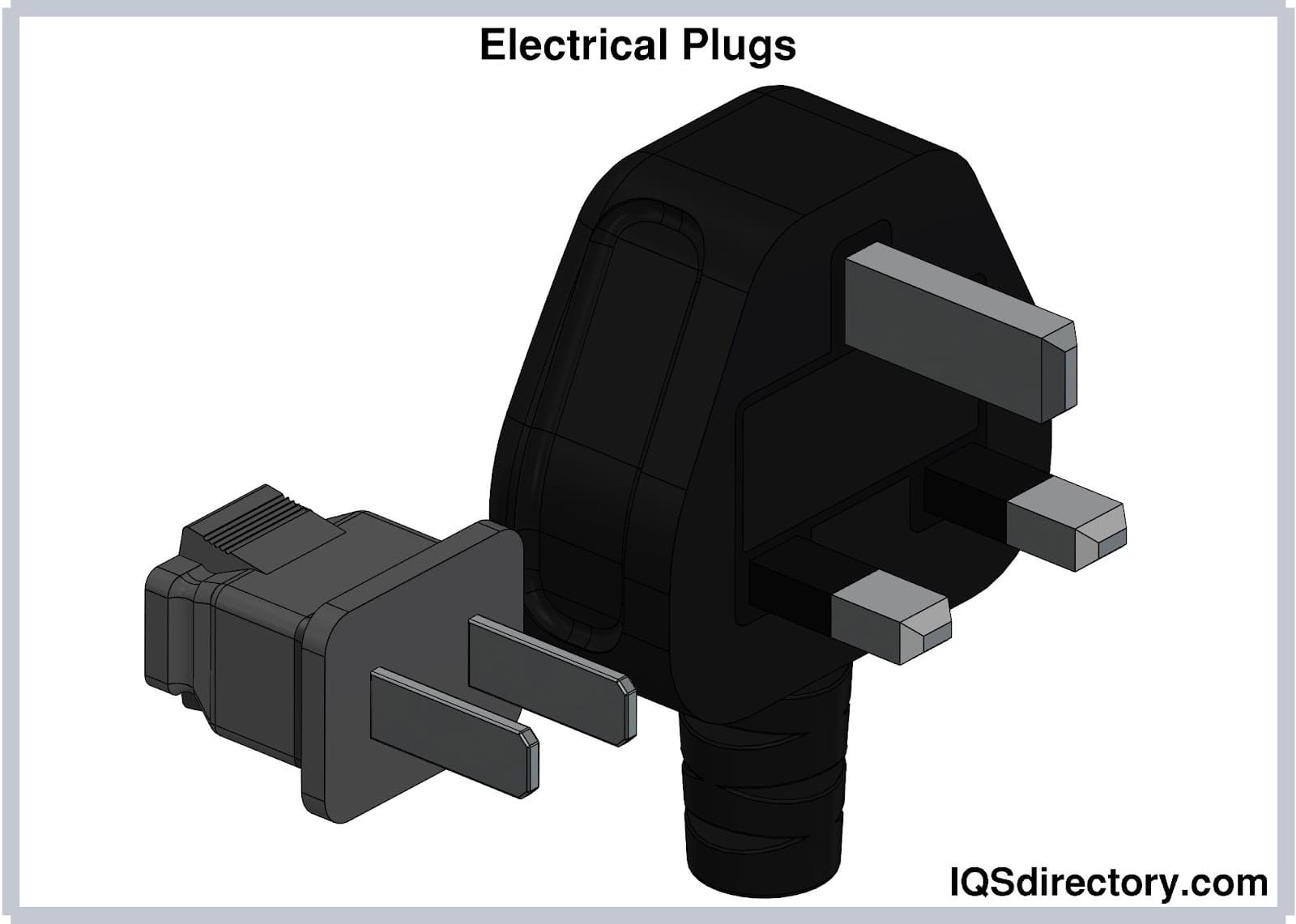
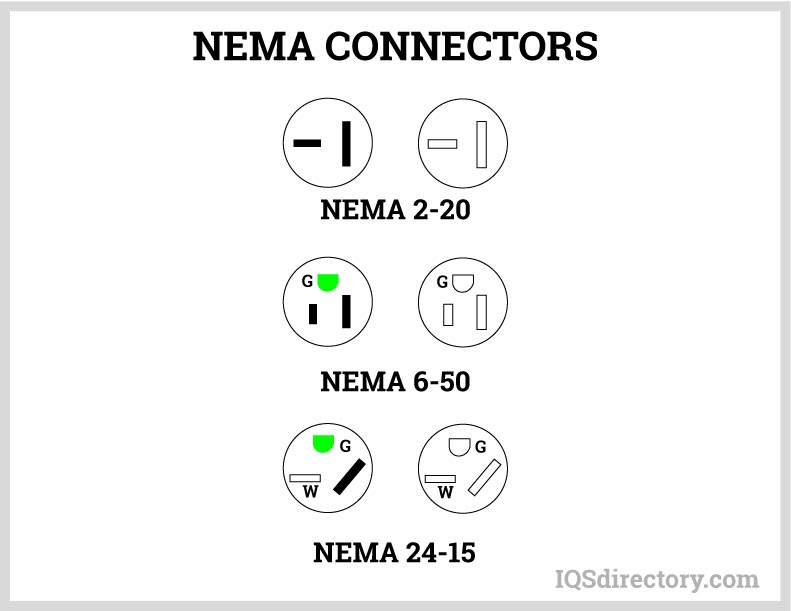
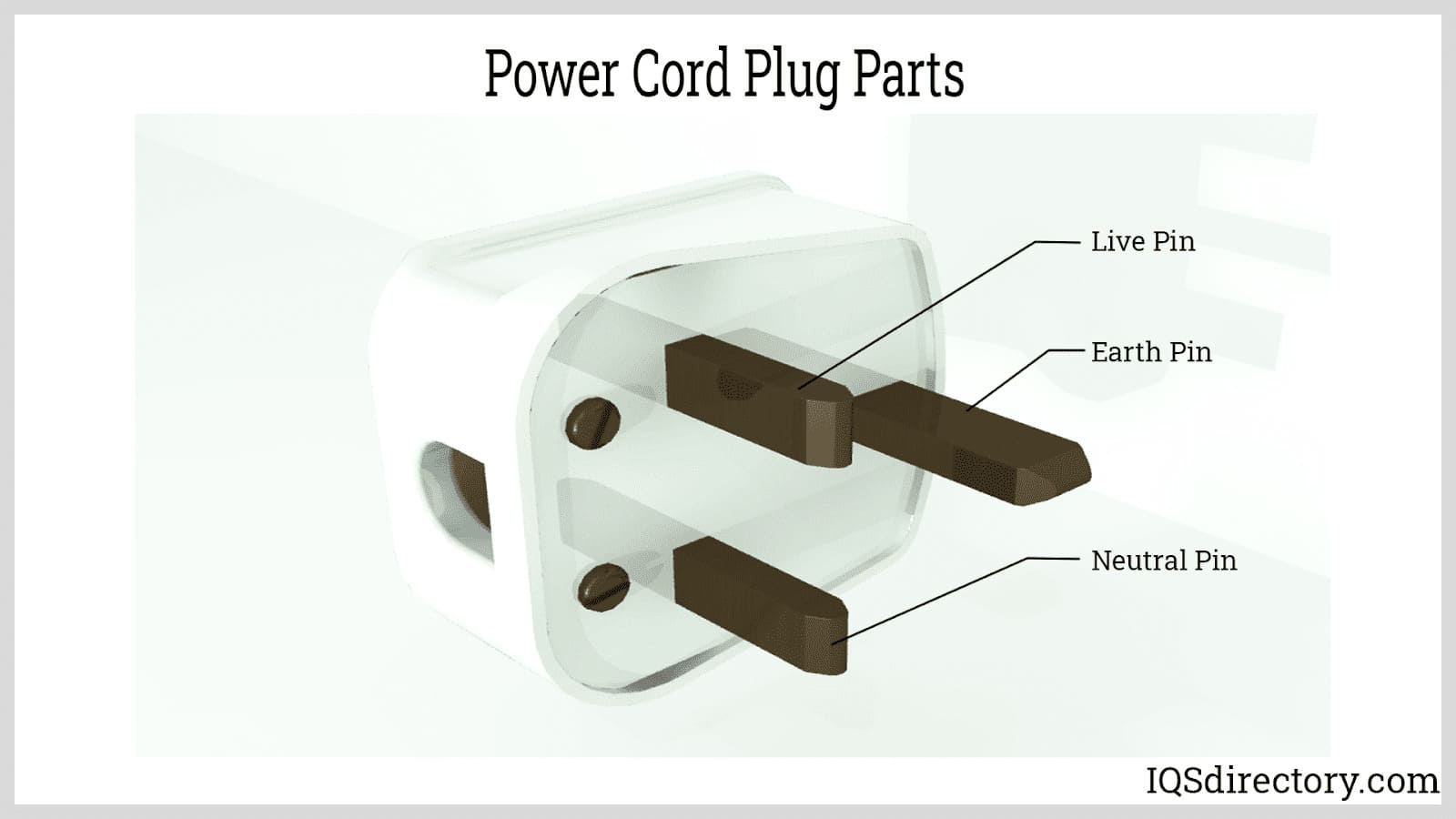
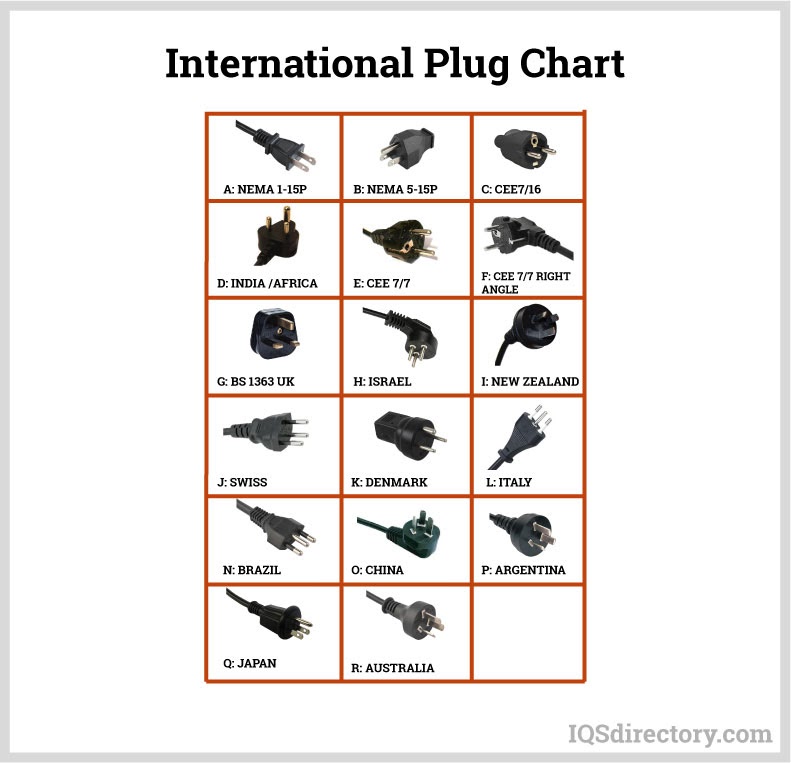
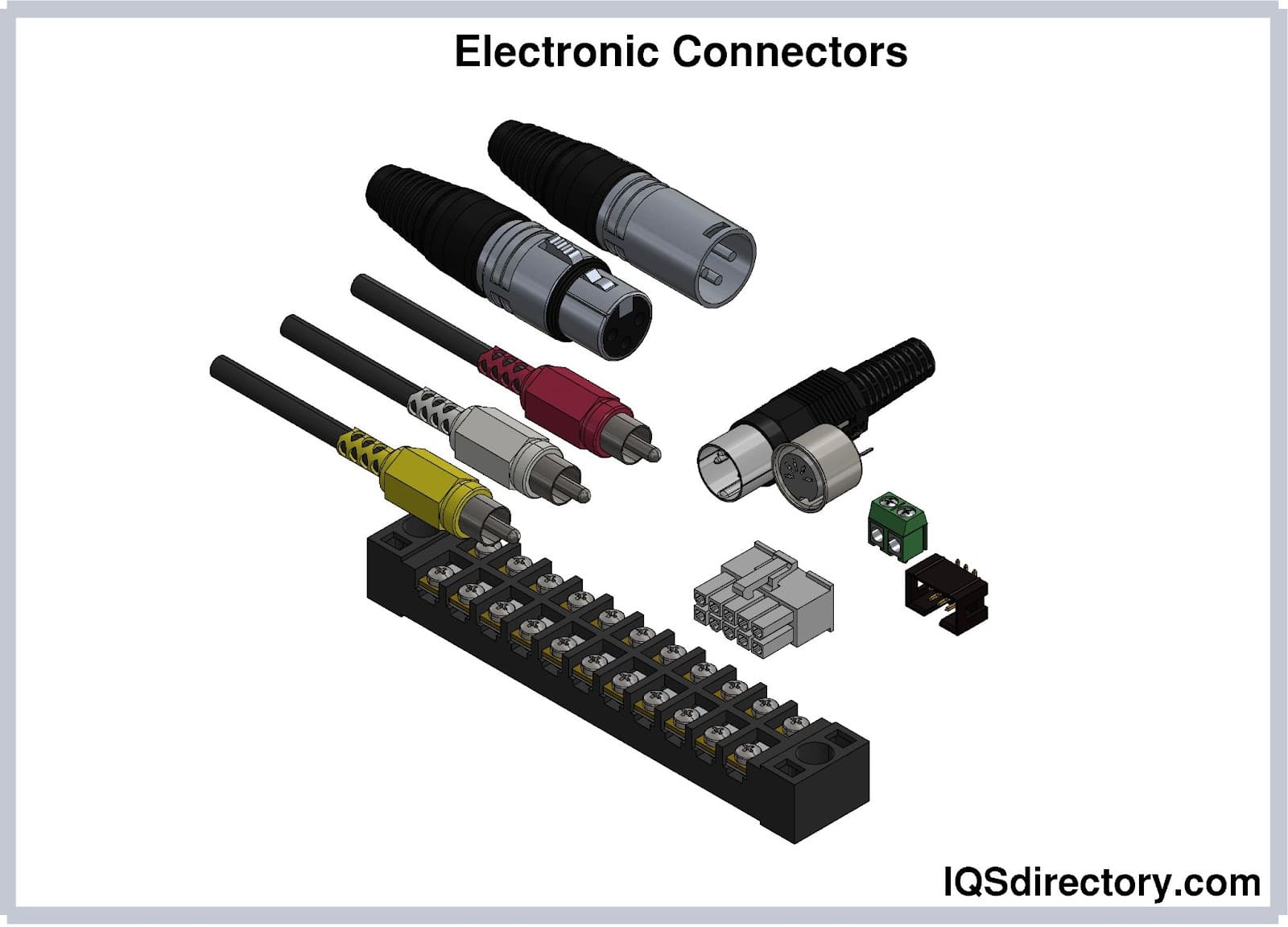
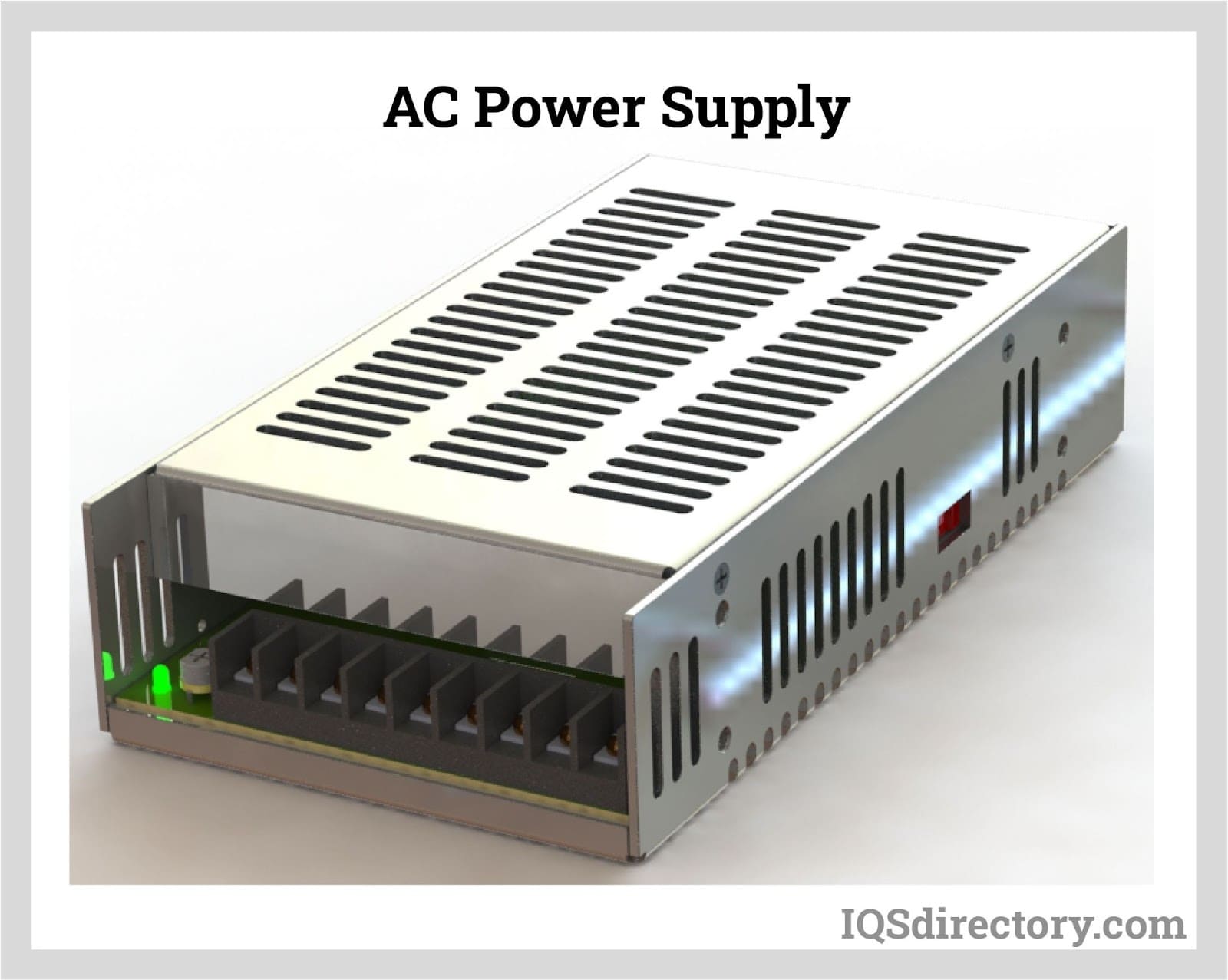
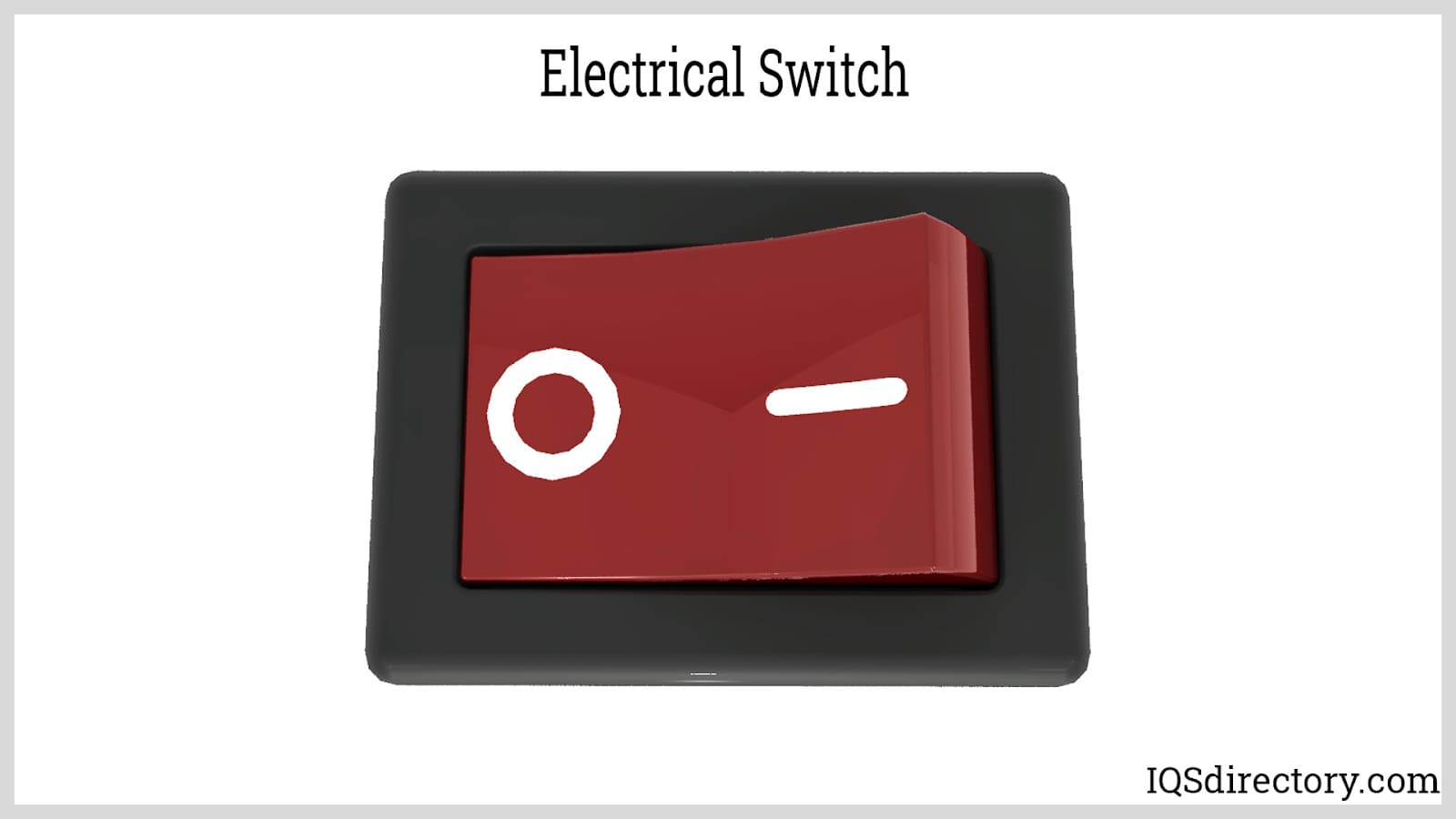
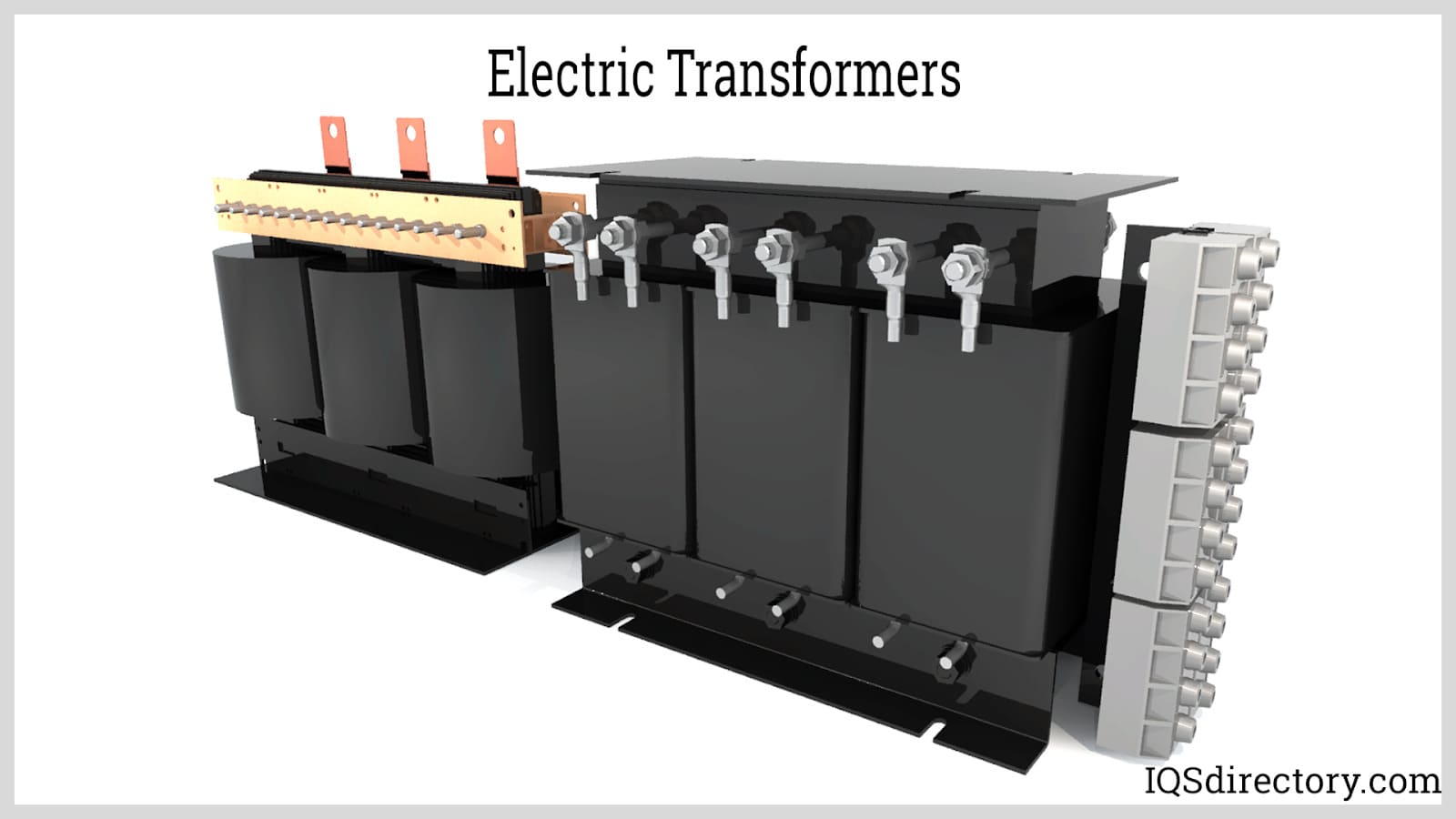

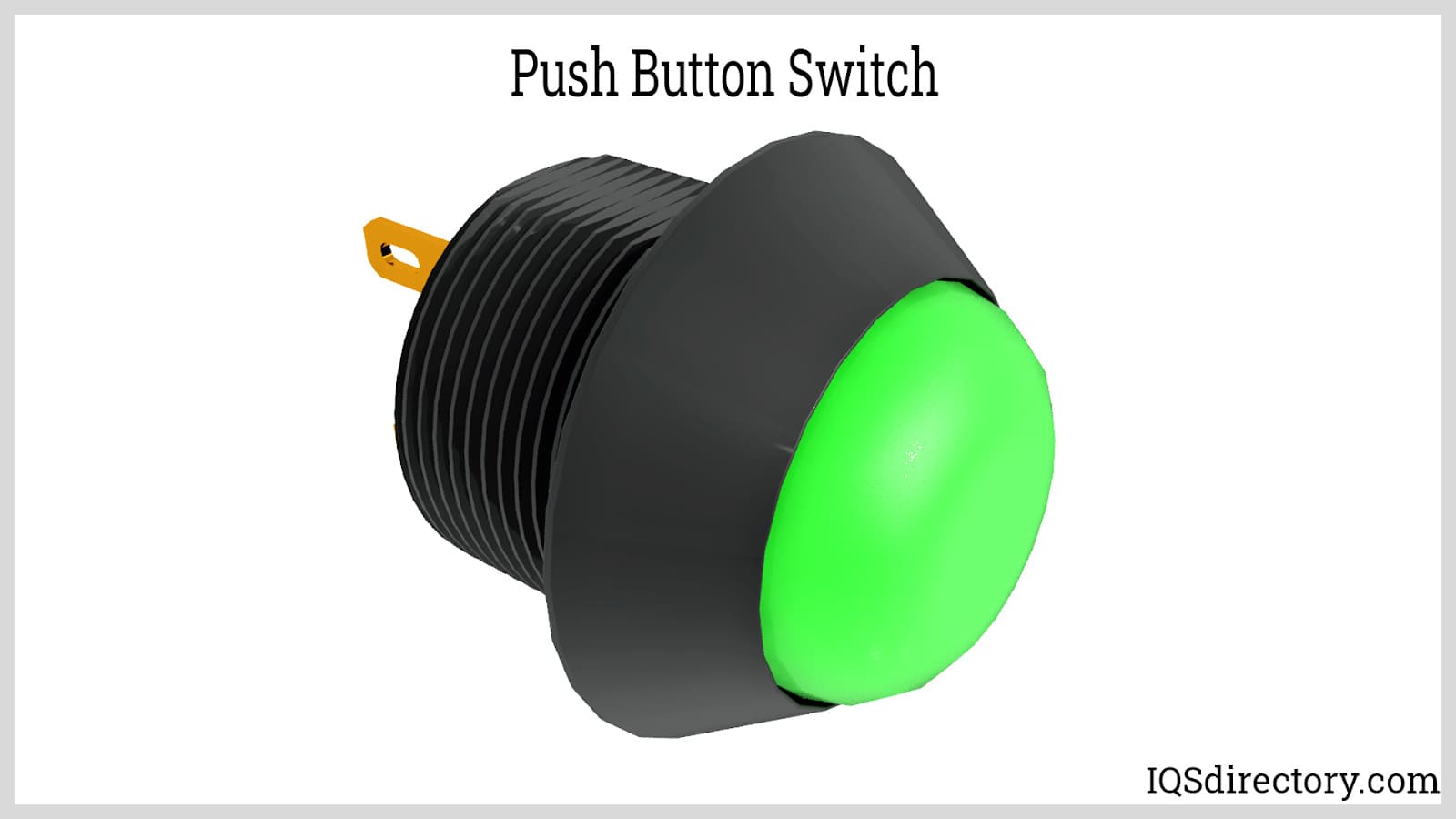
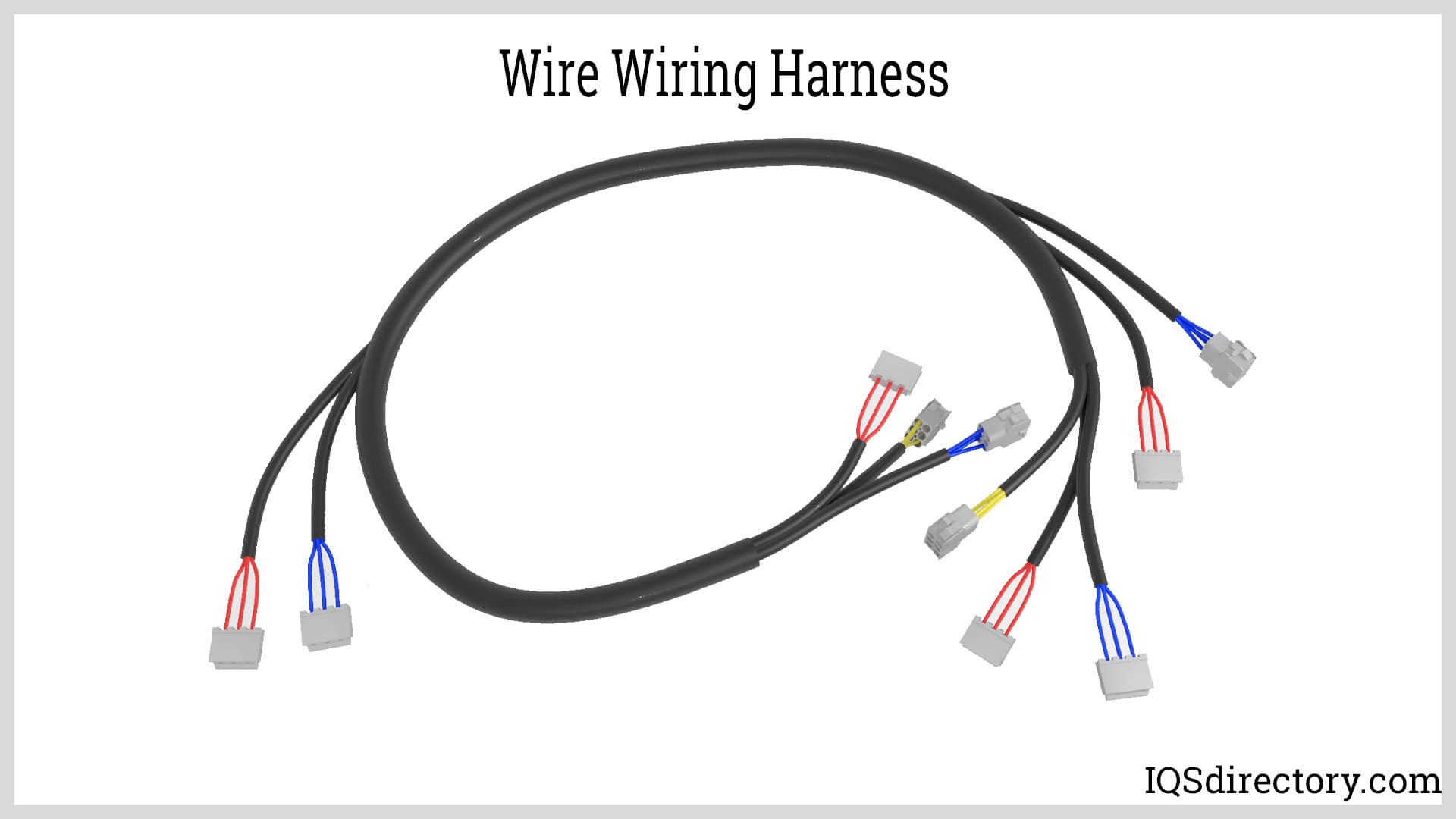
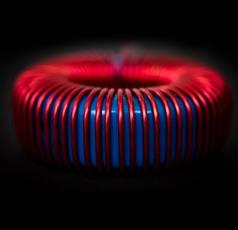 Electric Coils
Electric Coils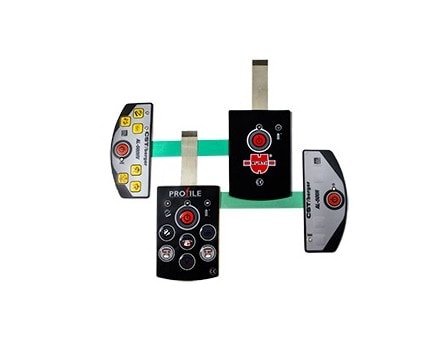 Electric Switches
Electric Switches Electric Transformers
Electric Transformers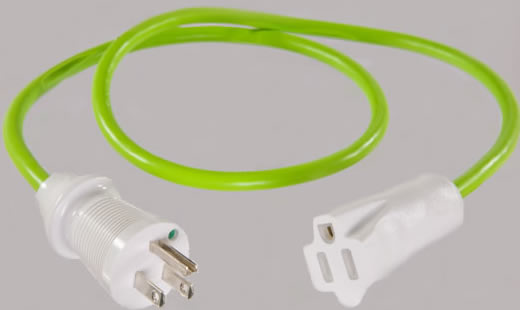 Electronic Connectors
Electronic Connectors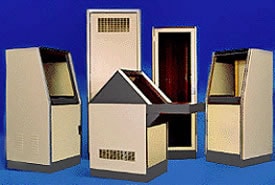 Electronic Enclosures
Electronic Enclosures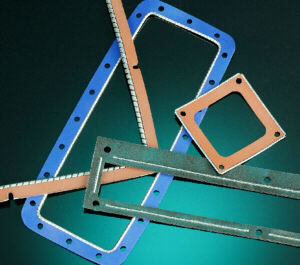 EMI Shielding
EMI Shielding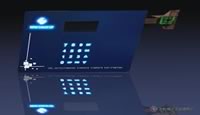 Membrane Switches
Membrane Switches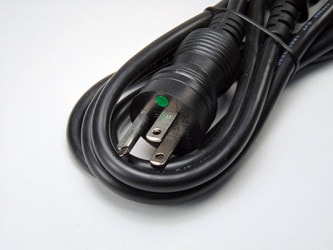 Power Cords
Power Cords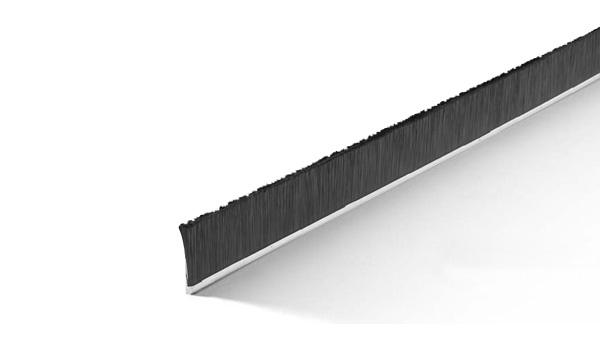 Static Eliminators
Static Eliminators Castings & Forgings
Castings & Forgings Bulk Material Handling
Bulk Material Handling Electrical & Electronic Components
Electrical & Electronic Components Flow Instrumentation
Flow Instrumentation Hardware
Hardware Material Handling Equipment
Material Handling Equipment Metal Cutting Services
Metal Cutting Services Metal Forming Services
Metal Forming Services Metal Suppliers
Metal Suppliers Motion Control Products
Motion Control Products Plant & Facility Equipment
Plant & Facility Equipment Plant & Facility Supplies
Plant & Facility Supplies Plastic Molding Processes
Plastic Molding Processes Pumps & Valves
Pumps & Valves Recycling Equipment
Recycling Equipment Rubber Products & Services
Rubber Products & Services